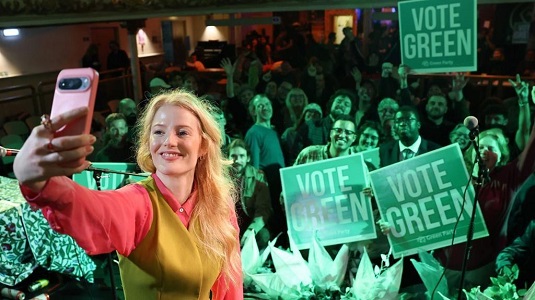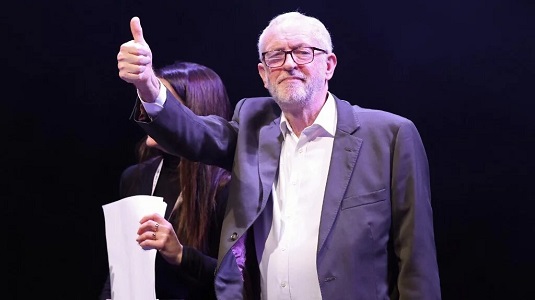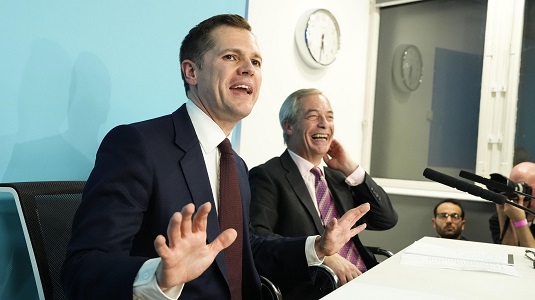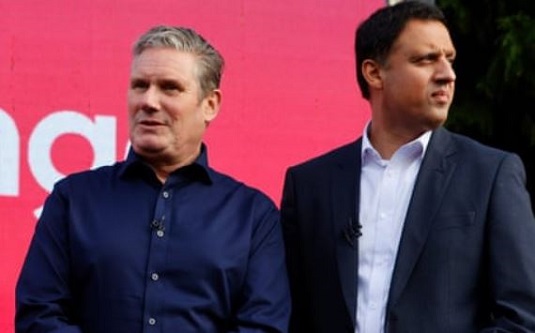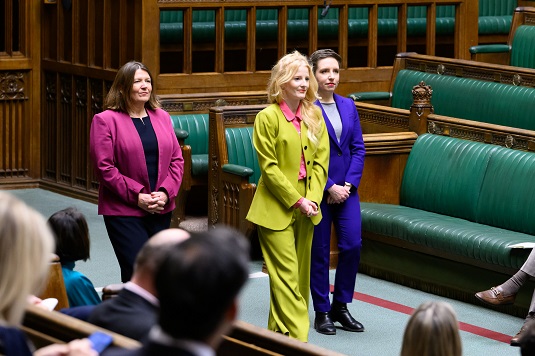
The reasons why Labour are sinking are well rehearsed, and doesn't bear repeating. But the steady evaporation of the party under Keir Starmer is a problem. Labourism from its earliest manifestations was always a means of reconciling the organised working class with the social order, of aligning the industrial incrementalism of trade union struggle with the coalition-building and proceduralism of constitutional politics. It was and, in its best moments, remains less a moral crusade and more a means of integrating the working class into the politics and (sensible) management of British capitalism. For it to do this, Labour needs to keep its base among the popular layers. However, it's been evident since Starmer became party leader that he either does not understand this or doesn't care. Because his approach to politics is both managerialist and obsequiously deferential to business, above all the City. Yet hollowing out the party before it even took office is to undermine Labour and Labourism's utility to British capital. Apart from its hyper class conscious and, therefore, paranoid elements, capital likes Labour because of its historic role in dampening down aspirations and movements from below. They appreciate Rachel Reeves's orthodox approach to state finances, but that's a nice to have. Labour is supposed to manage and police the class relations of British capitalism for capital's benefit from within the organised workers' movement. Something it cannot do if the mass support has vanished and has gone, in the main, to a radical upstart.
This is where the hysteria seen across the Tory press since Thursday's result comes in. It has been occasionally noted that the collapse of the Tories hasn't occasioned much soul searching or panic on the right. The reason being that Reform are available to articulate the interests that have hitherto animated the Conservatives, and that despite occasional argy-bargy between Nigel Farage and Kemi Badenoch, it's clear that should the situation demand some kind of electoral arrangement or governing coalition deal could be struck. With Reform leading the polls, the right are intensely relaxed about the vestigal status of the Tories. But, having driven all before it, if they weren't expecting Reform to win in Manchester they too believed the polls about how close the contest was. Instead they were handily seen off. This shouldn't be too much of a concern considering the character of the constituency, but have inhaled their own fumes. They - like the Labour right - caricature the working class as racists moved by the same oddball concerns as they. Having had their reality impinged upon, and seeing green left populism crowding out their tired old shtick, all of a sudden they're worried. Farage's cache is anti-political establishment, of being the "change" candidate. That the Greens have successfully contested these claims on one occasion, the right are now worried that they were getting high on their supply, and that we could be back in 2017 again. A fear reinforced by Reform's stalling in most national polls.
Here then is the problem. Labour are no longer suitable as a vehicle for mass politics, and therefore cannot be a reliable pacifier. Meanwhile, the great white hope of the right is not as popular as they thought it was. Centrism is, once again, a dead letter. And the right might not be strong enough to win an election, be it a Reform government or a coalition with the Tories. At the same time, as far as both parties are concerned the insurgent Green Party has come from nowhere and threatens to drag politics as a whole into confrontation with property, work, income, living standards, and why the rich have prospered at everyone else's expense. I.e. The class concerns politics normally works hard to obfuscate, smother, and deny. It follows that the press will try everything to shove hope back in its box - character assassinations, gossip mongering, smears, scare mongering, whipping up new scapegoat campaigns. But ultimately, these efforts are doomed. Since the final defeat of Corbynism in 2019, the Tories, Reform, and especially Labour have done everything possible to keep the left out of politics. And yet here we are - the Greens are becoming the new vehicle for working class interests and is mounting a renewed challenge to the establishment's class compact. No wonder so many of them are panicked.


